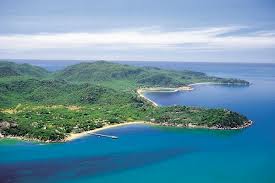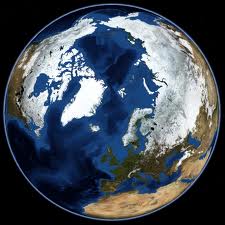Here’s a little thought experiment.
 Let’s say there is an island, say 12km by 12km, in a pleasant tropical environment with lush growth and plenty of edible and nutritious plants, a few animals, together with a water lens supplying a good supply of water. I think you would agree this would be a good place to live for a small tribe of people or perhaps even two separate tribes.
Let’s say there is an island, say 12km by 12km, in a pleasant tropical environment with lush growth and plenty of edible and nutritious plants, a few animals, together with a water lens supplying a good supply of water. I think you would agree this would be a good place to live for a small tribe of people or perhaps even two separate tribes.
Let’s further imagine that this island is totally cut off from all outside contact.
The tribes spend their days gathering and hunting food, some fish from the immediate sea and perhaps even indulge in a little simple farming, yams and cassava maybe. Life’s pretty good but still hard at times.
As time goes on, the tribes develop some simple technologies, bows, simple axes, tanning techniques, etc. They start using more of the resources, to make themselves more comfortable, the quality of life improves and, at the same time, the population increases due to various factors like improved health.
This slow, but steady, population increase continues for some time and, at some point, they start to notice changes on the island. There are fewer animals because of the increase in hunting, parts of the forest have disappeared as many trees have been chopped down and have not had a chance to regrow. The good quality trees are getting harder to find. There have been arguments with the other tribe over access to some of the best trees and hunting areas. Some of the local streams near the tribe have become polluted by the toilet areas and people get sick if they drink the water there so they have to go to the streams further away. But generally, life is very good.
Now, at this point, an outside observer might note that, even though most of the people in the tribes may be enjoying a very good quality of life, the environment on the island is changing significantly. It might be apparent to these outside observers that the Island is at, or has exceeded, it’s carrying capacity for these people given their current lifestyles.
Furthermore, an outside observer may also note that, if there is not a change in behaviour or a reduction in numbers then the people on this island are at serious risk of famine, disease, war or some other calamity, including the catastrophic collapse of their supporting environment and with it, their collapse as well. There is no margin, no room to move, no buffer.
If some other event occurred at this point, then that could easily push this system past the point of equilibrium. This could be an earthquake which significantly reduces the water supply, or perhaps a volcanic eruption which covers half the island destroying the vegetation and animals. Or even a Tsunami which wipes out the beaches and access to fish and seafood.
The point is, that we can work out the carrying capacity for this island, we can make estimates, based on lifestyle and resource consumption, on the likely impacts of any particular number of people. We can analyse, quite easily, the rate of environmental degradation vs. the lifestyle of the tribes. We can do these things because it is a closed system, because we can measure the impacts, we can measure the consumption of resources, because we can model the impacts of changes to lifestyle and to numbers of people. It’s relatively straightforward. We can even model the impact of environmental changes, like the volcano, or earthquake or any number of other scenarios.
But, of course, we don’t live on a small island, isolated, cutoff from outside contact, with limited resources and an environment susceptible to pollution and degradation or at risk from significant environmental change.
No, we live on a very large island floating in space, with an effective land area of approximately 12,000km by 12,000km, lush growth and plenty of edible and nutritious plants, a few animals, together with a good supply of water…
Interesting that people can’t seem to work out the carrying capacity of that island.

